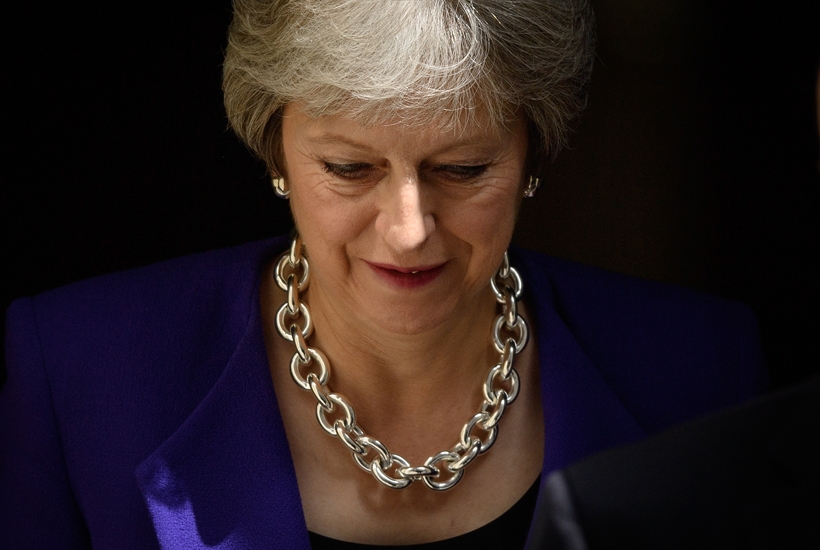Handling Brexit was never going to be easy for Theresa May, given that the Tories have been fighting a civil war over Europe for at least a quarter of a century. But the past ten days have been so calamitous that there is a real possibility that her Chequers gambit — threatening a general election unless MPs support her watered-down version of Brexit — could lead to the fall of the government and the ceding of power to the most left-wing Labour administration in history.
The mood in Parliament is now as anarchic as it was during the last days of the Callaghan government in 1979: the Maastricht crisis in 1992 looks rather tame by comparison. Like John Major, May has resorted to trying to get through day-to-day business by threatening to turn what should be routine votes into issues of confidence. Unlike Major, she has no majority to do that. When it came to defeating what would have been a destructive amendment to force Britain to join a customs union if no trade deal can be agreed by 21 January next year, May relied on the votes of three Labour MPs — people who have no reason to vote for her in any confidence motion.
It is hard to recall that, just 15 months ago, Theresa May appeared to be the most popular of prime ministers. She was headed, it seemed, for a general election landslide over Jeremy Corbyn. Moreover, she had a credible policy for enacting Britain’s withdrawal from the European Union, as she had laid out in her Lancaster House speech in January 2017: to leave the single market and customs union and instead to seek a free trade deal with the EU. Were it to prove impossible to negotiate such a deal, then Britain would leave the EU without one. She summed up her position by saying that ‘no deal is better than a bad deal’ and asked people to trust her to make good her pledge. By and large, they did.
Theresa May is in the position she is now because she did not stick to the Lancaster House policy. She called a general election on the need to stick to her guns, only to abandon them herself now. She failed to prepare for the ‘no deal’ scenario which should have been a vital part of Britain’s negotiating position with the EU. In his resignation statement, Boris Johnson said he left the government because he believes in what Mrs May sold to the country and does not think she needs to renege on it. It’s not that the negotiation has failed, he argues, it’s that negotiation has not been tried.
He has a point. There is nothing that other EU leaders fear more than an open-market, free-trade Britain which sucks investment from the rest of Europe. And if needs must, Britain can still pursue that alternative. The road would be bumpy, to be sure, but this might be preferable to the alternative of an unfinished Brexit that will take years to address — perhaps splitting the Tory party in the process.
There may be worse to come. The next round of negotiations with Michel Barnier and his team now looms, and they have a powerful opportunity. The EU ought not to be blamed for putting its interests first. The interests of nation states lie in a free trade deal and good relations, but the interests of the European Commission lie in keeping the union together — which means making an example of Britain. Michel Barnier infuriates Brexiteers precisely because he has played his hand very well. Every time he asks for concessions, he gets them. Why would he not ask for more now?
We know how the EU likes to do its negotiations — at the end of a summit, in the small hours, after a dinner when everyone just wants to go to bed. Brexit will be no different: if a deal is finally to be done, it will go to the wire, hammered out by officials. Europe is bound to offer Britain an even less good deal than that proposed at Chequers.
May presented her Chequers proposals as if they were the only option — her approach was a faint cry of Mrs Thatcher’s ‘There is no alternative.’ The trouble is that everyone can see there was an alternative: to stick to the strategy she announced at Lancaster House and to go to Brussels with the clear backstop position of walking away, committing Britain to trade on World Trade Organisation rules but saying to the EU that the door would always be open to a free trade deal in future. If any of her MPs objected, she need only show them the manifesto on which they were elected last year.
May was never likely to be one of Britain’s best prime ministers — she did not have the vision for that. But a failure to stick to her own policy could mean she will go down as one of the worst. She has very little time to put things right.






Comments